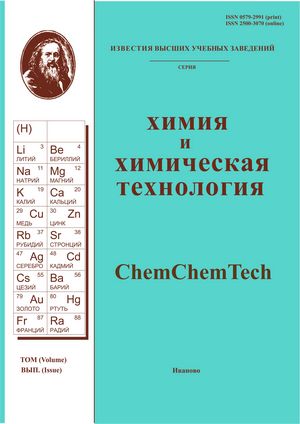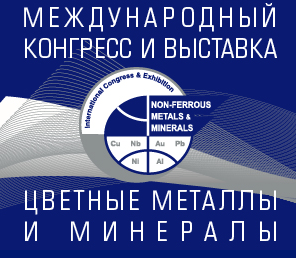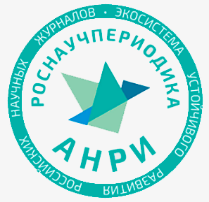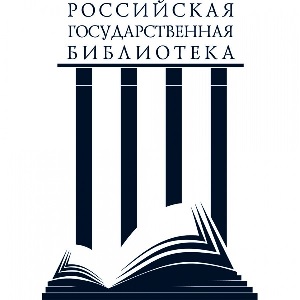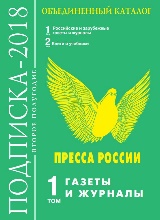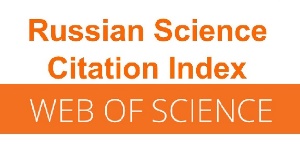THERMAL DESTRUCTION OF CHONDROITIN SULPHATE ISOLATED FROM BARENTS SEA HYDROBIONTS
Abstract
The results of the thermogravimetric analysis of chondroitin sulfate, isolated from the cartilage of salmon, the northern slope, and the blackmouth shark in the temperature range of 40-600 °С are shown. Thermal analysis was performed using differential thermogravimetry and differential scanning calorimetry. The crystallinity degree of the samples was evaluated using diffraction patterns. It was shown, that under experimental conditions, thermal decomposition of the bulk of chondroitin sulfate samples is observed at a temperature of 230 to 530 °C. Differential thermogravimetric curves and differential scanning calorimetry curves contain five endothermic peaks associated with desorption of physically present water. Desorption of bound water occurs almost to a temperature of 150–200 °C, which can be explained by the difficulty of breaking hydrogen bonds between water molecules and polar functional groups of chondroitin sulfate. Small endothermic peaks correspond to the process of removal the physical volume of water. Four consecutive exothermic peaks are associated with the thermal destruction of the acid, pyranose, and finally, residual carbon and sulfur compounds. The rates of mass loss at each site were determined and the activation energies of each event were calculated. The nature of the cartilage tissue from which chondroitin sulfate is extracted affects the rate of destruction. So, in the temperature range of 236-244 °С, the lowest rate of destruction is observed for XC samples isolated from salmon cartilage tissue. The effect of crystallinity degree on the process of thermal destruction of chondroitin sulfate samples is shown. The results of the thermal destruction of chitin / chitosan obtained from the northern shrimp are presented. It was found that less activation energy is required for thermal destruction of chondroitin sulfate compared to chitin/chitosan at all stages.
References
Muzzarelli R.A., Muzzarelli C.A. Chitosan Chemistry: Relevance to the Biomedical sciences. Adv. Polymer Sci. 2005. V. 186. P. 151-209. DOI 10.1007/b136820.
Rogovina S.Z., Grachev A.V., Aleksanyan K.V., Prut E.V. Study on thermal stability of mixtures based on synthetic polymers and natural polysaccharides. Khim. Rast. Syrya 2010. N 4. P. 45-50 (in Russian).
Shestak J. Theory of thermal analysis: the physico-chemical properties of inorganic solid substances. M.: Mir. 1987. 456 p. (in Russian).
Zhang Z., Zhu M., Zhang D. A Thermogravimetric study of the characteristics of pyrolysis of cellulose isolated from selected biomass. Appl. Energ. 2018. V. 220. P. 87-93. DOI: 10.1016/j.apenergy.2018.03.057.
Yuan C.M., Li C., Li G., Zhang P.H. Determination of kinetic parameters of maize starch in air using thermogravimetric analysis. Adv. Mat. Res. 2012. V. 508. P. 114-117. DOI: 10.4028/www.scientific.net/amr.508.114.
Uryash V., Kashtanov E., Kalashnikov I. Thermodynam-ics and physico-chemical analysis of chitin and chitosan. Saarbrücken: LAP LAMBERT Academic Publ. 2014. 117 p. (in Russian).
Kuchina Yu.A., Dolgopyatova N.V., Novikov V.Yu., Konovalova I.N., Prinsteva M.Yu., Sagaiydachny V.A. Thermal decomposition of natural polysaccharides: Chitin and chitosan. Vestn. MGTU. 2015. V. 18. N 1. P. 94-99 (in Russia).
Konovalova I.N., Novikov V.Yu., Kuchina Yu.A., Dolgopyatova N.V. The effect of heterogeneous deacetylation on the thermal destruction of chitin. Izv. Ufimskogo nauchnogo centra RAS. 2018. N 3 (2). P. 60-63. DOI: 10.31040/2222-8349-2018-3-3-80-84. (in Russia).
Fajardo A.R., Silva M.B., Lopes L.C., Piai J.F., Rubira A.F., Muniz E.C. Hydrogel based on an alginate-Ca2+/chondroitin sulfate matrix as a potential colon-specific drug delivery system. RSC Adv. 2012. V. 2. N 29. P. 11095-11103. DOI: 10.1039/c2ra20785k.
Vasconcelos Oliveira A.P., de Abreu Feitosa V., de Oliveira J.M., Coelho A.L., de Araujo P. Vieira L., de Assis Rocha da Silva F., de Assis Avelino Figueredo Sobrinho F., Duarte E.B., de Souza B.W., de sa Moreira de Souza Filho M. Characteristics of chondroitin sulfate extracted of tilapia (Oreochromis niloticus) processing. Proc. Eng. 2017. V. 200. P. 193-199. DOI: 10.1016/j.proeng.2017.07.028.
Portsel M.N., Novikov V.Yu., Konovalova I.N. Membrane separation of polysaccharides and proteins at chon-droitin sulfate extracting from marine hydrobionts. Rybnoe Khoziaystvo. 2009. N 4. P. 118-119 (in Russian).
Snegereva M.N., Novikov V.Yu., Konovalova I.N. Study of physico-chemical properties of chondroitin sulfate from the fish cartilage. Proceedings Murman. scientific-practical conf. "Technique and technology for processing hydrobionts and agricultural raw materials" April 24-25. 2008. Murmansk. 2008. P. 56-59 (in Russian).
Portsel M.N., Novikov V.Yu., Konovalova I.N., Dolgo-pyatova N.V. Application of electro-chemical deposition for purification of chondroitin sulphate extracted from see hydrocoles. Izv. Vyssh. Uchebn. Zaved. Khim. Khim. Tekhnol. 2015. V. 58. N 10. P. 66-70 (in Russian).
Volpi N. Analytical aspects of pharmaceutical grade chondroitin sulfates. J. Pharm. Sci. 2007. V. 96. N 12. P. 3168-3180. DOI: 10.1002/jps.20997.
Novikov V.Yu., Konovalova I.N., Dolgopyatova N.V. Chemical bases of technology of chitin and its derivatives from Crustacea carapace. SPb.: GIORD. 2012. 208 p. (in Russian).
Krylov V.B., Grachev A.A., Ustyuzhanina N.E., Ushakova N.A., Preobrazhenskaya M.E., Kozlova N.I., Portsel M.N., Konovalova I.N., Novikov V.Yu., Shash-kov A.S., Nifantiev N.E. Preliminary structural characterization, anti-inflammatory and anticoagulant activities of chondroitin sulfates from marine fish cartilage. Russ. Chem. Bull. 2011. V. 60. N 4. P. 746-753. DOI: 10.1007/s11172-011-0115-x.
Novikov V.Yu., Dolgopyatova N.V., Konovalova I.N., Kuchina Yu.A. Polyelectrolyte complex of chitosan and chondroitin sulfate: formation, physico-chemical properties. Izv. Vyssh. Uchebn. Zaved. Khim. Khim. Tekhnol. 2017. V. 60. N 2. P. 60-66. DOI: 10.6060/tcct.2017602.5501. (in Russian).
Mar’in A.P., Shlyapnikov Yu.A. Thermal and thermooxidative degradation of chitin. Vysokomol. Soed. Ser. A. 1980. V. 22А. N 3. P. 589-594 (in Russia).
Kulik T.V, Palyanitsa B.B., Borodavka T.V., Sklyar A.M. Study of thermal transformations of chitosan in con-densed state and on the silica surface by MALDI mass spec-trometry method. Mass-Spektrometrya. 2006. V. 3. N 3. P. 175-180 (in Russian).
Nadirov E.G., Mustafaeva N.M., Imanbekova T.D. Thermal stability of sodium acetate trihydrate. Innovations in science: Coll. of Papers of XXXI Int. Scientific-Pract. Conf. No. 3 (28). Part I. Novosibirsk: SibAK. 2014. P. 40-50 (in Russia).

